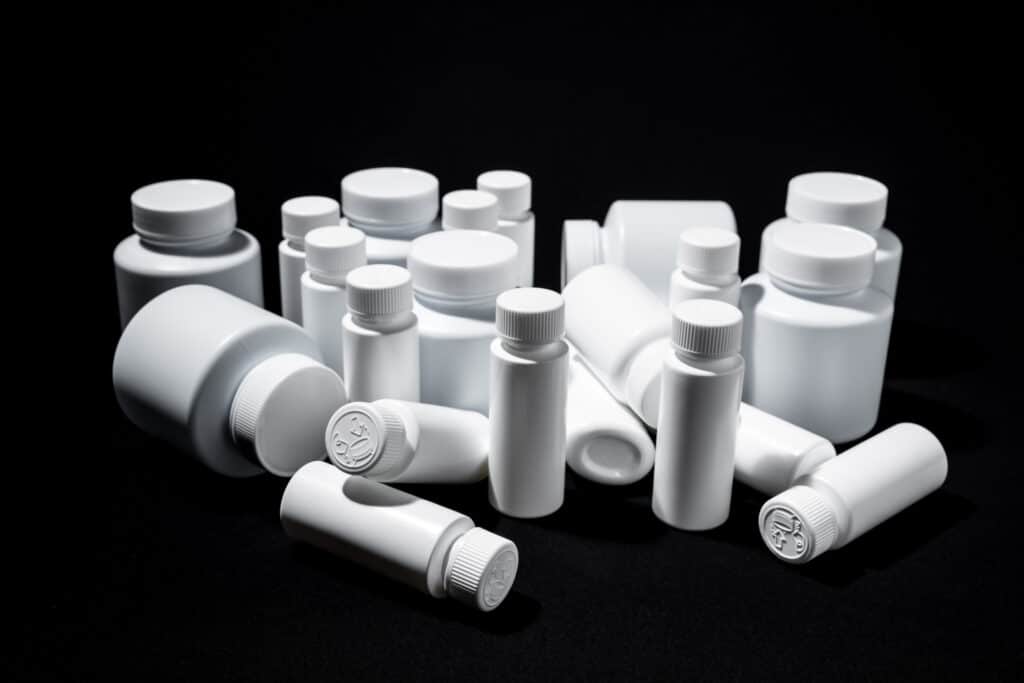How to Remove Reviews from Japanese '@cosme' Website

Characteristics and Nature of the Site
@cosme is a comprehensive information site about cosmetics and beauty, operated by iStyle Inc. It targets women of a wide range of ages and provides information about cosmetics, primarily based on user reviews. Among its features, the category-specific cosmetic review rankings are particularly popular. These rankings are updated based on the scores given in the reviews. @cosme has accumulated over 15 million reviews, and based on these, it hosts an annual event called the “@cosme Best Cosmetics Awards (Bestcos).” Cosmetics that win the “Grand Prize” or are inducted into the “Hall of Fame” at Bestcos are prominently displayed in drugstores and cosmetic shops, making it a highly noticed event in recent years.
Cosmetics, which women use daily, have a large market size. There are various types of cosmetics available, from those sold in drugstores and branded cosmetics sold in department stores, to mail-order cosmetics and imported cosmetics from overseas. The choices are extremely abundant in terms of types and price ranges. Also, since cosmetics come into direct contact with the skin, many people are careful in their selection. Therefore, consumers often refer to review sites and introductory articles, such as @cosme, when choosing products.
A unique feature of @cosme is its function to narrow down reviews based on the reviewer’s skin type, effects, and purchase location. For example, if you have dry skin and are prone to atopic dermatitis, it can be difficult to know which product is right for you when choosing in-store. However, you can find out how the product feels to people with similar skin types, which can provide a sense of reassurance before making a purchase.
What Kind of Reputational Damage Can Occur on This Site?

As mentioned earlier, cosmetics reviews can be very helpful and informative for consumers. However, in today’s world where the influence of reviews is increasing, negative reviews can lead to a negative image. That being said, a low rating does not immediately equate to a malicious post. Opinions and ratings vary from person to person, and especially with cosmetics, which come into direct contact with the skin, there can be a difference in compatibility depending on the user’s constitution, leading to variations in ratings. Even so, @cosme, a site where anyone can register and which has a high degree of anonymity, contains malicious comments that can easily lead to reputational damage.
Typical examples include:
- Giving a low rating for reasons unrelated to the product
- Providing information based on falsehoods (posting content that differs from the facts)
- Posting multiple low ratings for the same product
- Defaming or causing inconvenience to third parties
At @cosme, reviews continue to be posted even after a member has left, and you can look back at reviews from several years ago. Therefore, if such posts remain, there is a risk of significant damage, such as products not selling due to bad reviews.
Relationship between the Terms of Use of the Site and Reputational Damage
@cosme has a set of “General Terms of Use” and “Guidelines” for posting and using reviews, @cosme Q&A, and @cosme blogs. Article 6 of the Terms of Use states:
(4) Acts of registering or providing false information
(5) Acts of defaming other members or third parties
(12) Acts deemed to have a negative impact on minors
(17) Other acts that our group deems inappropriate
These are listed as prohibited actions for members.
Additionally, the guidelines list “Prohibited matters concerning reviews and posts” such as:
- Posts that do not include personal usage experiences or impressions
- Methods or information that could potentially harm the body
- Content that infringes on the personality or rights of a third party
- Posts that are objectively judged to be obscene, unclean, cruel, derogatory, persecutory, or otherwise offensive to others
- Content that violates or is likely to violate Japanese laws or local ordinances, or is judged to be undesirable in light of general morality
- Content with extreme political, religious, or ideological bias or discrimination
- Content that is difficult to verify the truth of and could negatively affect third parties
- Content related to personal troubles
These are specifically listed. In addition, it is generally prohibited to post multiple reviews for the same product.
How to Report a Violation of the Terms of Use

The guidelines stipulate a “Right to Delete”. This is a right granted to iStyle Inc., the company that operates @cosme, to “delete posts or revoke membership without notifying the poster or other users if we determine that the post is in violation of these guidelines and the ‘@cosme General Terms of Use’, or is likely to be so.”
Posts will be deleted if they are deemed to “disrupt the order of the @cosme community or pose a risk of harm to members”. If you wish to request deletion, you will need to apply through the “Contact Form for Violations of the Terms of Use”. The decision will be made based on the guidelines and the @cosme General Terms of Use.
Examples of Claims of Illegality in Anticipated Reputational Damage and Methods of Preventing Transmission
The “Contact Form for Violations of Terms of Use” is located under “Contact for Violations of Terms of Use” or “Help & Inquiries” at the bottom of the AtCosme site. First, follow the form, select your name, email address, reason for violation, etc., describe the specific content, and then send it.
Example of Inquiry Content
Thank you for your time. I am △△, who sells 〇〇 Lip.
I would like to request the removal of a review that contains baseless slander.
https://www.cosme.net/product/product_id…
It is a review by ID×× who visited in November 2019,
On the 5th line, it says, “〇〇 Lip contains a harmful ingredient called □□, so my lips got rough. I recommend everyone not to buy it.”
However, our product does not use such ingredients at all. This is different from the truth. This statement violates Article 6 (4) of the @cosme General Terms of Use, “Act of registering or providing false information,” and the 16th prohibited item in the guidelines, “Content that is difficult to verify the truth and adversely affects third parties.” It can be said that this post violates the terms of use and guidelines.
For these reasons, I would like to request deletion. Thank you for your cooperation.
As shown above, clearly state “where the review you want to delete is,” “where it is violating,” and “how it is violating the terms of use and guidelines.” Please note that there is basically no reply or report. Check the review regularly to see if it has been deleted.
If it has not been deleted after more than two weeks, it would be a good idea to request deletion again just in case. However, as a caveat,
“The right to delete that our company exercises to maintain the order of @cosme does not impose any obligation on us regarding posts.”
Therefore, just because you apply does not mean that it will definitely be deleted.
If a post that interferes with business or harasses you is not deleted even after requesting deletion from @cosme, you will have to file a lawsuit.
Removal Procedure through the Courts

Indeed, if the content violates the law, you can dispute the removal through the courts with the help of a lawyer. In relation to measures against online reputation damage, there are mainly three types of provisional dispositions and lawsuits:
- Request for removal of posted articles and application for provisional disposition
- Request for disclosure of sender information (request for disclosure of IP address, request for disclosure of name and address)
- Claim for damages (claim for damages after identifying the poster)
Among these, the requests directly related to removal are the request for removal of posted articles and the application for provisional disposition. A provisional disposition is a method stipulated in the Japanese Civil Preservation Law (民事保全法), which is used when a quick resolution is required, to seek temporary measures before obtaining a final judgment through a formal lawsuit. In cases like this, where there are defamatory reviews, there is a high risk of irreparable damage once the information spreads, so it is effective to use the provisional disposition system to seek the removal of the information as soon as possible. Once a provisional disposition order is issued, the court orders the other party to remove the post, and the other party will comply with the removal.
For detailed explanations about the removal of such articles and the procedure for provisional disposition when you suffer from defamation or reputation damage, please refer to the following article.
https://monolith.law/reputation/provisional-disposition[ja]
So, what should you argue as the basis for requesting removal? When making these claims against @cosme, the main argument would be “defamation”. Article 230, Paragraph 1 of the Japanese Penal Code (刑法第230条1項) stipulates the elements of defamation, stating, “A person who publicly indicates a fact and defames the honor of another person shall be punished with imprisonment for up to three years or a fine of up to 500,000 yen, regardless of whether the fact is true or not.”
In other words, defamation is established when:
- “Publicly”
- “Indicating a fact”
- “Defaming someone’s honor”
All of the above 1. to 3. apply. Let’s take a closer look at when the requirements of 1. and 2. are met.
First, 1. “Publicly” means a state where an unspecified or large number of people can recognize it. In cases like this, where reviews are posted on a website on the Internet, it can be said that they are placed in a state where an unspecified number of people can view them, so this requirement should be met without any problem.
Next, 2. “Indicating a fact” means stating a specific fact that is sufficient to lower a person’s social evaluation. And this specific fact does not matter whether it is true or false unless its truth is proven. In the case of this example, such as “The raw material contains a harmful ingredient called □□”, this description gives the impression that the product is harmful to the human body, and it seems to be a fact that significantly lowers social evaluation. Also, if it is false that it contains harmful ingredients, the poster will not be able to prove the truth, so it will not be a problem.
Finally, 3. “Defaming” means causing a state where there is a risk of damaging social evaluation. This means that even if the social evaluation is not actually damaged, it is sufficient if there is a risk of it in the abstract, and it is not necessary for the honor to be actually infringed. In other words, in this case, you do not need to prove that the post in question was viewed by an unspecified number of people, that there was a flood of criticism or protests against the product, or that it was picked up on other sites as news. It is enough to say that there is an objective risk.
For detailed explanations about the elements of defamation, please refer to the following article.
https://monolith.law/reputation/defamation[ja]
Summary
We have discussed defamation in this article, but there are other claims to consider, such as invasion of privacy, and rights to injunction based on the Japanese Copyright Law and the Japanese Trademark Law. The type of claim to make and whether removal will be granted depends on the individual case. In any case, if you are claiming illegality, you will need the help of a lawyer. Start by consulting with a lawyer to determine whether the review violates the law.
Category: Internet





















